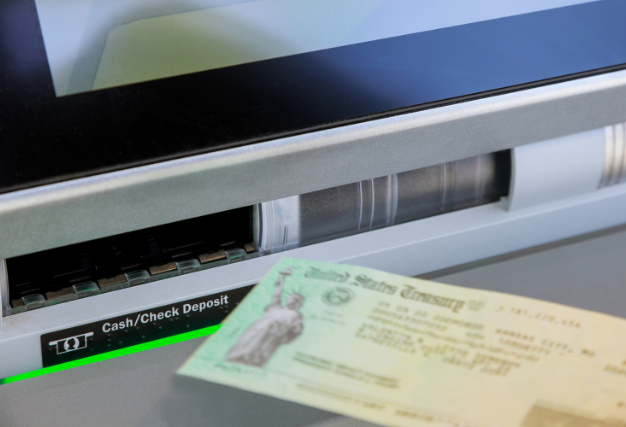Author Sarah Jannusch is a certified financial counselor with LSS
Financial Counseling.
Holiday gift giving strategies [especially on a tight budget]
The holiday season is approaching. December holidays include Kwanzaa, Hanukkah, Christmas, Winter Solstice, Soyal, New Year’s Eve and Las Posadas, to name a few. If you love the rituals behind these holidays, it’s more about attending an event with family or your community and honoring certain traditions with songs or ceremonies than it is about giving gifts. But if you grew up in a tradition of gift giving during holidays, this time of year can be difficult if you’re on a tight budget.
As a financial counselor, many people I serve struggle financially when buying presents, or it’s difficult for them to come up with an affordable plan for budgeting these additional expenses. Here are some gift giving ideas to make this time less stressful.
Take the “no gifts” approach
If you answer yes to any of these questions below, consider giving no gifts:
- Is your budget so tight that you cannot realistically afford gifts?
- Would spending money on gifts mean using a credit card and going into debt?
- Is it a challenge to keep your spending in check?
- Are you experiencing emotional/psychological challenges, a health issue, or other major stressor that is using up your mental energy and affecting your ability to make multiple financial decisions?
If people in your social or family group don’t have expectations for gifts and are already aware that others in the group are in a different financial situation, “no gifts” is easier. When there is family or social pressure to buy presents, then a discussion about financial differences might be necessary. This discussion can include other reasons for not purchasing gifts, such as protecting the environment or keeping clutter out of homes. People in your circles also might place a higher priority on spending time together instead of buying gifts.
Consider consumables
When you give a gift, you’re likely to get a smile and a “thank you” from the friend or family member who receives the gift. However, you might never really know if the gift is really appreciated (unless they are honest to a fault).
A way to beat the odds and increase your chances that the gift will be well received is to give a gift they can eat, drink or use. Think food, beverages, toiletries, diapers, coffee, chocolate, cookies — things that don’t sit around for a long-time collecting dust. I’ve eaten many a homemade soup, dinner, cookie, etc. that have been amazing. For someone who has a fireplace or backyard firepit, fire starters can be made from dryer lint, toilet paper rolls, rags and even bacon fat. The beauty of consumables is that there is something for almost every income level.
Get creative
Being frugal with gift giving can inspire creativity and connection and make the holiday extra fun and delightful. For a family with very young children, for example, I’ve seen a gift of diapers stacked like a three-tiered cake or a motorcycle.
Here are some other ideas to spur creativity:
Hold a white elephant party
Create rules that the gifts must be homemade or already found in your home. This gives people the chance to share with others things they might have in abundance (a house plant, a jar of homemade salsa, a hilarious knickknack, etc.)
Cook together
This is something that can be shared across generations. Even the smallest kids enjoy baking, mixing up the simplest of treats (like Rice Krispie bars), or preparing easy and affordable brownie or cake mixes from a box.
Decorate with items you make on your own
My daughters made their own Advent calendar one year, and it is precious bringing it out every holiday season. As the parent, I am tasked with filling the little paper pouches for each day of the month with a note of something fun to do.
The best creative projects can require forethought and time, but they can be some of the best gifts, not to mention easy on your bank account.
Plan way ahead
An excellent example of planning in advance for holiday gift purchases came from a matriarch of a family with children and grandchildren. The woman was a person I served as a financial counselor, and she told me that I could share her story. She and her husband were on a fixed income, and after reviewing their budget, I couldn’t find a penny to spare. In fact, I was not sure how she and her husband were able to pay their bills on time, still have money for food and gas, and avoid overdrafts in their checking account. I was surprised when she told me that she gave gifts to everyone in her family.
She explained that because she lives in northern Minnesota (where the snow is deep and the winter is long), she wanted all her children and grandchildren to have a car safety kit. All year long, she saved coffee containers, purposely buying containers that were red and green. Throughout the year, she would buy items for the kits when she saw something on sale. Little by little, she added to the containers, until she had them assembled for each loved one in time for Christmas.
Another way to plan ahead is by saving. If you have a goal of purchasing certain items, set aside a certain dollar amount in a savings account each month, then only spend what is in that account at holiday time.
Black Friday, Cyber Monday and all the other crazy shopping days start in November. If you want to participate in these sales to get the lowest prices for items on your list, then I would advise only using money that you have saved up previously. Don’t buy anything on a credit card.
Develop an attitude of appreciation
My last tip for gift giving is about our perspective toward it and how we react to others and the things we receive. A gift only has value if it is appreciated. In our daily lives, we can choose to appreciate something’s value or not. It can be as simple as enjoying food you eat and really savoring the moment. It can be feeling gratitude when something is done for you, like someone washing the dishes so you can sit and relax, or a child who intentionally memorizes their multiplication tables and recites them for you because they know it will bring you joy to see their accomplishment.
You might need to intentionally create spaces so that you can allow yourself to be present to people, moments and things. This might mean creating boundaries for yourself. It might be difficult to do this if you are managing a household with children or if life becomes chaotic. Your children might have meltdowns when switching from one event to another. There might be feelings of jealousy if some people get expensive things and others don’t. Whatever the situation, identifying your own needs can enhance your ability to be in relationship with others. Find and use strategies for self-care, whether it is waking up early, taking a shower to escape and relax, or practicing yoga or meditation. Recognize there might be times when it is best to leave a situation or to say no.
Sometimes we think throwing money at things will make life better. Avoid that urge. Come back to the basics, like setting boundaries, being present, and being in a place where the everyday and everyone can be appreciated.
If you are finding it difficult to make your credit card payments, LSS Financial Counseling is here to help. A Debt Management Plan might help you pay off your debt faster AND save money in interest.
Call us today at 888.577.2227 to schedule your free session with a trusted, nonprofit financial counselor. You can also email us, or you can get started online by creating your financial profile.




